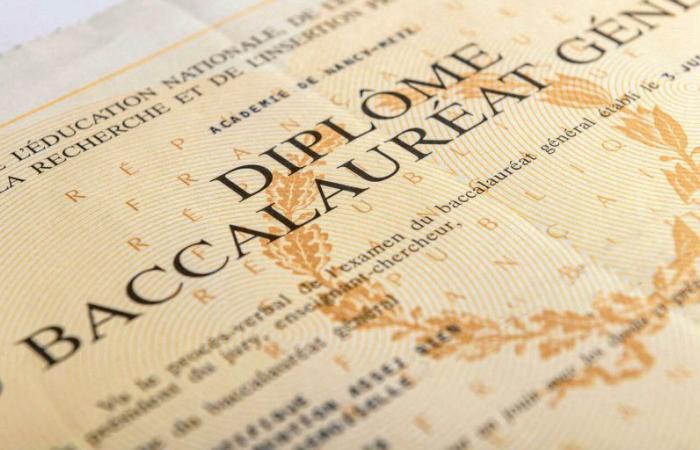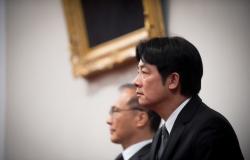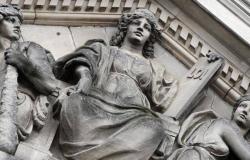QWho doesn’t remember his “philosophy baccalaureate”? The main test marks the start of a series of tests, and also marks the end of high school for many students. This year, 392,145 final year students in the general pathway and 151,224 students in the technological pathway will take these tests this Tuesday, June 18.
Every evening from 6 p.m.
Receive the information analyzed and deciphered by the Point editorial staff.
THANKS !
Your registration has been taken into account with the email address:
To discover all our other newsletters, go here: MyAccount
By registering, you accept the general conditions of use and our confidentiality policy.
Will philosophy continue to mobilize high school students? Since the baccalaureate reform carried out by Jean-Michel Blanquer in 2019, continuous assessment represents 40% of the final mark when the written tests count for 60%. The final year students will then only have two specialty tests to take (from June 19 to 21), then the grand oral (from June 24 to July 3, depending on the academies). Some now consider that the baccalaureate has since lost its luster.
“Does the state owe us anything? », “Is nature hostile to man? », “Is the artist master of his work? »… Here are detailed indicative plans and some food for thought for the 2024 philosophy subjects.
Technological section: corrections from Valentin Husson*, doctor of philosophy
Dissertation No. 1: Is nature hostile to man?
The difficulty of such a subject lies in two things: the definition of nature and the possible personification of it.
1. Is nature the whole of what is, what has not yet been modified by man (and which is therefore opposed to culture), or the very nature of man, what who constitutes it in essence? Which, therefore, would raise the question of whether human nature is not also hostile to man.
2. By personifying nature, we attribute to it an intention that it does not have. A tsunami certainly carries away everything in its path, but it does not manifest an intention to be hostile or to do harm to humanity. The purpose of nature is not to harm us. She is what she is. Only man has intentions and, therefore, only humans can be hostile to nature.
Problem: is nature hostile to man or is it man who is hostile to nature?
I) Yes, nature is hostile to us
Man is a cultural being who has had to modify nature to satisfy his needs or invent medicine to protect himself from the viruses that proliferate there. Culture aims to overcome or master this hostility. Man therefore becomes the master and possessor of nature (Descartes, Discourse on Method). But isn’t this mastery a predation? By wanting to appropriate it, are we not destroying nature? Are we not more hostile than her? And, in response to this, wouldn’t nature seek revenge on us?
II) Nature could take its revenge
She would, for example, send us Covid-19 to punish us for our misdeeds. This vengeful nature was a widespread belief among the Ancients, in particular. The gods of nature tested men. A student could use more recent references such as disaster films or Princess Mononoke by Miyazaki. In this film, Ashitaka, the prince of the tribe, is bitten by a wild boar god, and sets out to meet the god of the forest, the deer god, to understand why nature took revenge on him. It is an ecological fable which brings into play the hostility of nature towards men. The student could walk away from this film. Princess Mononoke notes that humans are destroying nature and are gradually becoming their enemies. The deer god is ultimately killed and the forest disappears with him. Man would thus be more hostile to nature than the reverse.
III) Man would be more hostile to nature than the reverse
It is possible to ask: does nature have a purpose? No, Spinoza tells us in Ethics, nature has no precise goal, only man sets ends. Thus, only he could have evil intentions towards her. He destroys the planet to get rich. The lure of profit is stronger than anything. Human nature is insatiable. So much so that there is inscribed within it a hostility to it. It is not nature, therefore, which is hostile to man, but human nature which is hostile to nature.
Dissertation No. 2: Is the artist master of his work?
The difficulty here is to know whether the artist is a worker like any other, who has know-how and a given goal. It could very well be that the artist, who is not quite an artisan (carrying out work with a purpose which specifies the usefulness of the object), is surprised by his work once he sees it. has realised. Would this mean that the artist does not control his creation? And that it is she who controls it and does it?
Problem: Is the artist master of his work or does his work become master of him?
I) The artist is master of his work
The artist is master of his work in the sense that he uses technical processes that he has learned and that he sets an objective. He knows more or less where he wants to go and how he wants to get there. Artistic work is partly a matter of know-how. The artist is not a mad genius waiting for inspiration from who knows where. He is trained in his art and has technical mastery of it. For Nietzsche, artists are above all “great workers” (Human, too human). They put their craft back on the work a hundred times. They are master builders. Pygmalion, in the Ovid’s Metamorphoses, masters the work of a sculptor when he locks himself in his workshop to sculpt the woman he imagines to be perfect: Galatea. You cannot be an artist without mastering your work, that is to say without knowing what you are doing and where you are going.
II) However, the artist can also lose control of his work
This is the case of Pygmalion, which we were talking about. Disappointed by women, he locks himself into celibacy, sculpts Galatea, the perfect woman in his eyes, and falls in love with her. His work as an artist made him lose all control. It is a beautiful representation to make us understand that the artist’s work escapes him. We are not masters of the work we carry out. Is it the artist who is master of his work or his work which is master of him? The artist may have an idea of what he wants to achieve, but his final work will not resemble the idea he had. The painter’s idea of his work comes from his gesture (Alain, Fine arts system). It is his work that surprises him and inspires him. The poet, as Mallarmé says, leaves “the initiative to the words”. The writer writes to know what he is writing while writing. It is the work that thus masters the artist.
III) But can we, therefore, still talk about work?
Work has a purpose: to produce utility. We produce a table for a specific use. It is therefore not the work of the artist, his work, which becomes master of the artist (otherwise every work would have a precise utility, a given interpretation), but his inspiration. Art is a free creation (Kant, Criticism of the faculty of judgment). The artist’s work (his work) is guided by his inspiration, and no one is master of his art. If the artist is therefore technically master of his work (through his classical training), inspiration surprises his work. Inspiration is the artist’s mistress: it diverts his work towards another end that the artist had not even imagined. It is the work that makes the artist and not the artist who makes the work.
Text commentary: Plato, Laws IX (IVe century BC AD)
In the technology sector, this is not a classic comment with a plan, but two questions are asked to candidates.
Question 1: According to the text, what are the evils that can threaten society?
Question 2: Based on your understanding of the text, you will ask yourself if it is possible, and in what way, to reconcile the good of individuals and that of the community.
Here are the main ideas of the text:
This text by Plato, taken from Laws, questions man’s relationship to life in society. Does he prioritize his particular interest over the general interest? And, if so, how can we force him to live more for the common good than for his personal good? It is thus the sociability of man, or his eternal unsociability, that is in question here; and the capacity, for politics, to constrain this natural human inclination by weaving social bonds, by reconciling the good of the community and that of individuals.
Laws are necessary for men so that they live in harmony with their fellow men, without which they would only be “beasts”. […] wild.” By nature, a beast is driven by its survival instincts. What is first for her is the satisfaction of her particular need, without regard for other animals. The law of the strongest is always best for the animal. But living in society requires doing what is “profitable” for oneself and others, wishing and aiming for “the best”.
Living together has the condition of being interested in the “general good”. The evils which threaten society are therefore the selfishness of each person which “tears societies apart”, breaks the social bond, establishes the reign of the struggle of all against all. Living for one’s own good without thinking about the good of others makes life in society untenable.
However, even a strong State, with “absolute power”, cannot ensure that individuals want the good of others above all else. Private interest will prevail one way or another. It is inscribed in the “mortal nature of man”. Man is moved more by his base instincts than by his reason. It is his pleasure that guides his life, rarely his intellect. Man wants to escape “pain” and “pursues his pleasure” independently of the general will.
Only laws could regulate and limit this capricious and individualistic human nature. Only laws could reconcile the good of the individual and the good of all. On condition that these are decreed by men of reason (philosophers?) who prefer temperance to passions. Reason must therefore reign over society to dispassionate it and put the general interest before personal interest. Political art consists of reconciling the irreconcilable, of weaving social bonds, of governing individuals by laws which force them to live together and to think of the common good before their particular good.
* Doctor in philosophy, lecturer at the University of Strasbourg, Valentin Husson is the author of several works, including The Ecology of History (Diaphanes, 2021) or even The Art of Food. A philosophy of taste (University Presses of France, 2023).
Continuation of corrections to come for the general section…






